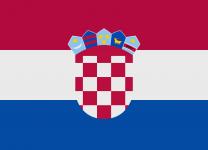Country:
Croatia

At a Glance
Gender equality is one of the fundamental values of the constitutional order of the Republic of Croatia. The national priority of the Republic of Croatia is to ensure a balanced participation of women in all social processes on all levels, through effective implementation of polices already in place as well as introducing new measures created in close cooperation with all relevant stakeholders. Guided by the awareness that securing gender equality is one of the basic principles in the respect for human rights, and that gender equality and equal participation of women in society substantially contributes to the stability and prosperity of any society and to the prevention of conflicts and post-conflict recovery and development at large, Croatia supports the work of the Equal Futures Partnership and therefore joined the initiative in 2013.
On the national level, Croatia will continue to promote measures that would combat gender discrimination and in parallel raise public awareness on gender equality. Internationally, Croatia will continue to promote global empowerment of women, particularly in the post-conflict and transition states, through targeted political and diplomatic activities and cooperation within the international institutions, organizations and initiatives. Croatia’s development cooperation policy focuses on education, health and small businesses for women.
The Croatian Ministry of Foreign and European Affairs is the national body responsible for guidance and implementation of the Equal Futures Partnership commitments. The Ministry initiated an Inter-agency Steering Group to ensure wide consultations and involvement of all relevant actors, from government ministries and offices to Gender Equality Ombudsperson and non-governmental organizations.
CROATIA’S EQUAL FUTURES PARTNERSHIP COMMITMENTS
The Croatian National Action Plan for the participation in the Equal Futures Partnership was developed in 2013, focusing on three national and one international key area.
- Promotion of stronger political participation of women: promotion of gender equality and strengthening the position and role of women in politics, focus on women’s participation in local elections, combating gender-based violence and stereotypes in relation to political inclusion of women, conduct awareness-raising campaigns to combat discrimination and promote rights of most vulnerable group (Roma, immigrants, victims of trafficking), conduct training in judicial institutions on treatment of women victims in court proceedings. Lead institution: Government Office for Gender Equality.
- Strengthening the social and economic position and role of women in rural areas: conducting analysis and developing an action plan to empower women’s status (family life, employment and economic development, education, legal protection, health care, cultural and humanitarian activities, political power and decision making), stronger cooperation with business entities and their associations. Lead institution: Ministry of Agriculture.
- Strengthening female businesses and trade and improving women’s access to labour market: encourage women to participate in national entrepreneurship programs, organize National Employment Office ‘s consultation and cooperation with employers/business and business associations to increase the number of women in the labour market (particularly those with inadequate skills, lower or inadequate education, victims of violence, long-term unemployed, inactive, minorities, women with disabilities), provide assistance in work-family life balance by regional and local government services. Lead institutions: Ministry of Entrepreneurship and Trades, Ministry of Labor and Pension Insurance System.
- International activities to empower women: promote women’s rights in international arena, particularly in the post-conflict states and states in transition, as well as post-conflict reconstruction, focus international development cooperation on education and small business for women, ensure inclusion of gender perspective in all international activities for peace and security, including training for troops in peace-keeping missions and operations that would deploy women, establishment of Women Police Officer Network in Southeast Europe. Lead institutions: Ministry of Defense, Ministry of Interior and Ministry of Foreign and European Affairs.
The Inter-agency Steering Committee will revise the National Plan periodically to redefine national commitments.